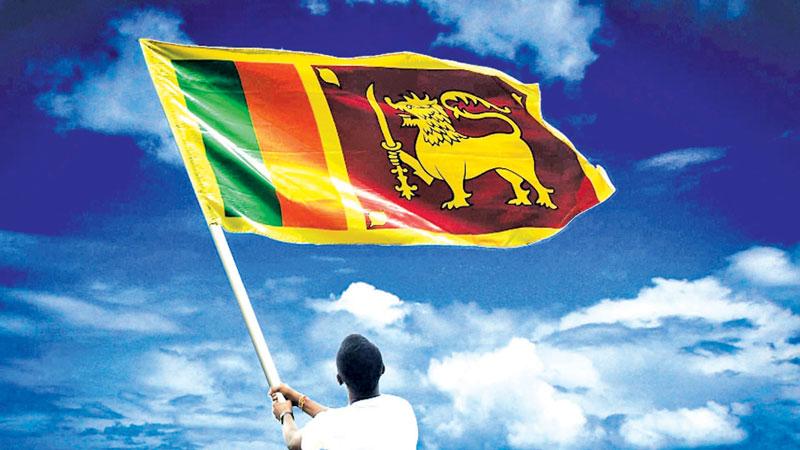
Tomorrow, Sri Lankans will celebrate the 71st Independence Day, which is a day of historical significance for the country. It is the day we honour and reflect upon all those who relentlessly fought to regain independence.
Today, Independence is a word often spoken of in a casual manner. Most of our younger generation think of Independence Day as a special holiday with parades, flags and festivals, as they have not witnessed the significant moment when the Union Jack was lowered and the Lion Flag hoisted on Galle Face Green and how our first Prime Minister, D. S. Senanayake made an inspiring speech.
He said, “Independence carries grave responsibilities on us. It is the duty of every citizen of Ceylon to grasp this opportunity and to strive and toil willingly for advancing the happiness and prosperity of the country”.
Our nation comprises many races, each with a culture and a history of its own. It is for us to blend all that is best in us, and establish peace, security and justice for all peoples.”
Certainly, the euphoria of that time in 1948 promised much hope for a nationally integrated nation. Yet, how many of us can truthfully declare that after 71 years we have reached a state of independence?
Gains and losses
In economic and developmental terms, we have much to be pleased about.
Thanks to the industry and ingenuity of our farmers, we have become self-sufficient in most staple foods, and thanks to the vibrant private sector, goods and services have reached nearly every corner of the country.
There are many success stories, from women’s empowerment to education to health, where we have made great strides after independence, though, of course, there is much that remains unfinished.
Despite our progress, we did have times of failure and frustration. We have at times been pulled back to square one, or our journey forward made troublesome by our own people.
Two such areas are visible. First, we have failed to reduce the gap between the haves and have-nots, and second, we have failed in our attempt to strengthen racial and religious integration.
Haves and have-nots
Today, the gap between the rich and the poor yawns wider than ever, and inequality, poverty, and hopelessness still exist in large measure. Throughout our history some have had more money than others. But in the past generation, the financial gap between the rich and others has grown wider.
Studies have shown that failing to address income inequality hampers the overall economic growth. So, it’s in everyone’s interest that something is done about it. But with the state carrying the weight of massive debt payments, can we afford more programs to uplift those at the bottom?
The Government must redouble its efforts to include everyone in the fruits of equality and ensure that no one is left behind.
National integration
Integration literally means the fitting together of parts to make one whole. Parts, of course, cannot be fitted together unless they are compatible. This is the first prerequisite of integration. A country must have national unity, cohesion and integration, to survive.
Sri Lanka has faced varying degrees of religious, ethnic, linguistic, economic and political confrontations, often in conflict with our national interests. The conflicts in 1958, 1977, 1981 and 1983 come to the mind.
To guard against all such challenges, a well integrated nation is a must. Having inherited a multi-ethnic and multi-linguistic population with different socio-cultural backgrounds, the danger of regional fragmentation is always there.
Therefore, national integration can only mean establishing a common citizenry, common political and social structures, a common country, and a common sense of identity.
Every citizen must generate feelings of patriotism and nationalism instead of regionalism and provincialism, and dedicate to the cause of national integration. The prevailing situation demands from the nation a sense of sacrifice and responsibility towards the State and society.
Good news
These two failures have stifled innovation, limited our economy’s ability to grow, led to unsustainable deficits and restricted our individual freedoms as Sri Lankans. It’s no wonder the young voters getting frustrated. They are expressing their frustrations through alternate media. Today’s Government is a far cry from what our founders envisioned.
The good news is, we haven’t veered so far that we can’t get back on track. If we act now, we can turn the country around and return to the ideals our first Prime Minister envisioned. But it will require political leaders to make tough decisions. We must address the issues now, not tomorrow, because we can no longer afford to ignore the challenges facing the nation.
Vision
In 2023- just four years away –Sri Lanka will celebrate the 75th year of independence. When we get to that point, what do we want the country to look like?
We want the country to free itself of the clutches of religious or racial extremism; unite all people, irrespective of race or religion, and uphold and respect each other’s beliefs in the face of diversity. This need not remain a dream after 75 years.
Sri Lanka belongs to all Sri Lankans and everyone has a right to call it their home. Like the child who reaches independence at 18, although we are nearly 4 times older than the youth, we still have a lot to learn about the true meaning of independence
When we celebrate the 75th birthday in 2023, let us hope we can accomplish the task of creating a nationally integrated society with a spirit of meaningful independence.
